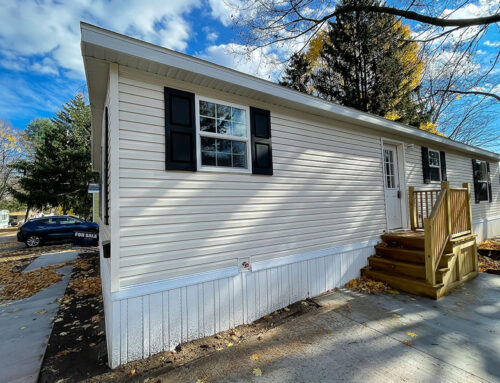Mike and Mona hadn’t been investing for very long when they decided to do some research on buying real estate from foreclosure auctions in NYC. They’d realized they needed a better strategy for finding distressed properties. Having paid for the use of lead lists, they knew there were a fair amount of foreclosures throughout New York—at least, according to the lists—and figured their bottom line might be better off if they focused solely on the foreclosures sold at auctions. Starting bids tended to be low and almost all the homes need a good amount of work. So, the potential to buy low and sell high after a decent rehab seemed pretty great. They asked what my thoughts were on the topic since I’d been successfully buying and renovating distressed NYC properties for a couple of decades. I was happy to tell them.
The Deal on Buying Real Estate From Foreclosure Auctions in NYC
The biggest reward you can expect to get from buying real estate at a foreclosure auction is a great New York investment house that costs little to buy and produces a solid ROI. Of course, that’s every investor’s dream for every deal. But, foreclosure auction homes, in particular, seem to offer the greatest promise for good returns. If you can buy, rehab, and resell even just a few of them, then you’ve got a chance of lining your pockets with a decent profit margin—ideally.
There seems to be a fair amount of local inventory to choose from, too. Throughout New York, foreclosure auction sales rose by 9% in 2017 from the previous year, reaching numbers not seen since before the housing crisis, according to ATTOM Data Solutions. This may be due, in part, to the large number of legacy foreclosures on loans that originated between 2004 and 2008. Although the backlog of foreclosures is dwindling nationwide, it’s actually increasing in New York. And, New York City boroughs like Brooklyn maintain some of the highest numbers of legacy foreclosures in the country.
But, there are numerous risks associated with buying properties from foreclosure auctions and it’s important not to overlook them when weighing whether or not to pursue this track for finding more deals. First, foreclosed homes aren’t just rundown and in need of work. Sometimes, they’ve fallen into serious disrepair because they’ve been neglected or damaged by the previous owner or have been sitting empty for months—even years. The truth is, they can be in very rough shape and require a lot of money to repair. Often, they also come with back taxes, liens, and other encumbrances attached that become your problem to solve once you take ownership. It’s also not unheard of that foreclosed houses have tenants, even squatters, inside that will be your responsibility to evict. And, because you’ll often have to close on the home you won fast, you don’t usually have the time uncover these and other issues that might have prevented you from bidding on a house in the first place. Even if you do have the time, you won’t necessarily have the opportunity since home inspections are rarely allowed.
Mike and Mona raised their eyebrows when I told them all this, but I could tell they still weren’t convinced. To make the point more strongly, I laid out the details of foreclosure auctions in New York three counties with historically high rates of foreclosure activity.
Queens County
Foreclosure auctions in Queens County are held by the Public Administrator. On the day of the sale, it’s important that you arrive with your non-refundable deposit in the form of cash, an official bank check, or a certified check to present at the time of registration. You can find out how much you need to bring, as well as a full list of auction properties with descriptions and photos, on the Public Administrator’s website and on their Twitter feed. Auction days and times, which are usually every two to three months, can be found there as well.
Unfortunately, one of the issues with this auction is that the foreclosure sales are so infrequent. You’ll need more than a few opportunities a year at buying and renovating foreclosed homes if you want to earn a living as an investor. And, because the Public Administrator can remove properties from the sale at any time or deny your winning bid for any reason, your chances of gaining good deal-finding traction with this auction are even slimmer.
Kings County
The foreclosure auction in Brooklyn is conducted by the Kings County Superior Court. There is less information online about the properties for sale in Kings County than in Queens, but you will find a list of homes available and the auction rules. Since the auctions happen every week, there are more opportunities to bid and buy than in Queens. You still have to come with money in hand for the deposit amount and it won’t be returned to you if you back out of a sale. But, you could have a better idea of what you’re getting into than you would bidding elsewhere because the court-appointed Referee will announce any known issues, like liens, on each property,
You should be aware, however, that if the foreclosing lender doesn’t disclose any encumbrances, then the Referee won’t have any to announce. So, you could end up be bidding on a property that has more problems than you’re able to pay for.
Bronx County
The Bronx County Supreme Court holds foreclosure auctions weekly. Again, this potentially gives you multiple opportunities to find distressed properties at a significant discount. You can expect that many of the auction rules and guidelines—like how and when deposits are made—to be relatively similar to the other counties since the court system in New York City is unified. Unlike Kings County or Queens County, however, the court does not provide a public list of properties for sale prior to each auction. Knowing if there’s anything for sale that’s worth bidding on—or how much cash for a deposit you should bring if there is—is going to be a guessing game. I don’t know about you, but I’ve got better things to do with my time than hanging around the Bronx County Courthouse every week just in case a good deal is going up for grabs.
In addition to the potential problems that these foreclosure auctions present, as well as the overall risks you expose yourself to when buying foreclosed homes, there’s another point you need to consider. Nationwide, the average time to foreclose on a home has increased by 28% since the last quarter of 2016 to over 1,000 days, according to ATTOM Data Solutions. In some places, like Queens County, New York, that number is even more incredible—2,810 days! What that means for you is that there is more than enough time to approach distressed homeowners long before they’re foreclosed on. You may even connect with them as early as when they’re just starting to struggle with their payments. And, in doing so, you have a better chance of offering these homeowners a helping hand by buying their home at a price that’s fair to them and good for your returns.
Invest in Pre-Foreclosure Homes for Better Returns on Better Deals
At one time, I considered hunting down distressed properties at foreclosure auctions around the city, just like Mike and Mona. But, ultimately, I decided that bidding on homes in questionable condition just wasn’t worth risking my potential returns. I like knowing what I’m getting into. Buying directly from homeowners is just so much easier than dealing with the courts.
Where do I find these homeowners? I don’t, actually. As an independently owned and operated HomeVestors® franchisee, they find me. See, the nationally-known “We Buy Ugly Houses®” advertising campaign reaches homeowners in 47 states and D.C. So, if they find themselves in financial trouble or another “ugly” situation and decide that they need to sell their home fast, homeowners immediately know who to call—a HomeVestors® franchisee like me. It’s a qualified lead-generating strategy that’s helped franchisees buy over 140,000 houses across the country since 1996. To me, that’s a much better deal than attempting to buy risky real estate from a foreclosure auction.
Find more qualified deals by helping homeowners come to you. Get in touch today about becoming an independently owned and operated HomeVestors® franchisee.
Each franchise office is independently owned and operated.
Contact
"*" indicates required fields





